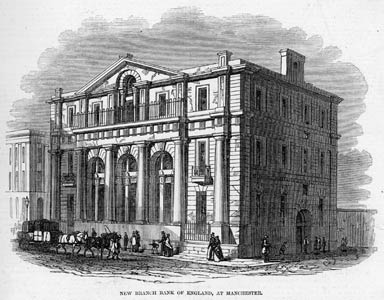|

NOTES ON ISSUE 5: HISTORICAL GLOSSARY
PART 1 OF 2
Printable View
Surely
there never was such fragile china-ware as that of which the
millers of Coketown were made…. They were ruined when they were
required to send labouring children to school; they were ruined
when inspectors were appointed to look into their works; they
were ruined when such inspectors considered it doubtful whether
they were quite justified in chopping people up with their machinery;
they were utterly undone when it was hinted that perhaps they
need not always make quite so much smoke.
Industrial reforms of the type Dickens mentions here were met with strong resistance from manufacturers, who consistently contended that changes would be too expensive and would drive them out of business. The 1844 Factory Act required children in factories to attend school for three hours each working day, and various acts regulated factory safety. The smoke produced by factories was another controversial issue, as laws began to require factories to install equipment that limited or "consumed" the incredible amounts of smoke they produced.
terrified the Home Secretary within an inch of his life
At the time of the book's publication, the Home Secretary—the minister responsible for dealing with manufacturing and labor—was Lord Palmerston. Palmerston was known for equivocating in his attitude to both industry and labor. Just before the publication of Hard Times, he had rescinded an order that shafts in factories be fenced after a group of manufacturerrs came to him to protest the order. Similarly, during the Preston cotton strike, her went back on assurances to labor that he would support their proposals. Except for a brief period in December 1853, Palmerston held the position of Home Secretary from 1852 to 1855.
the breath of the simoom
A hot, dry wind that carries sand across the deserts of North Africa and Asia in the spring and summer.
Mrs. Sparsit sat in her afternoon apartment at the Bank, on the shadier side of the frying street. Office-hours were over…. The Bank offered no violence to the wholesome monotony of the town. it was another red brick house, with black outside shutters, green inside blinds, a black street-door up two white steps, a brazen door-plate, and a brazen door-handle full stop.
Office hours for the Bank of England were 9 a.m. to 4 p.m. daily. Bounderby's bank is clearly a smaller affair than the large and imposing Bank of England. A new branch of that institution in Manchester was depicted in the Illustrated London News on March 6, 1847.

|

